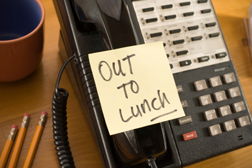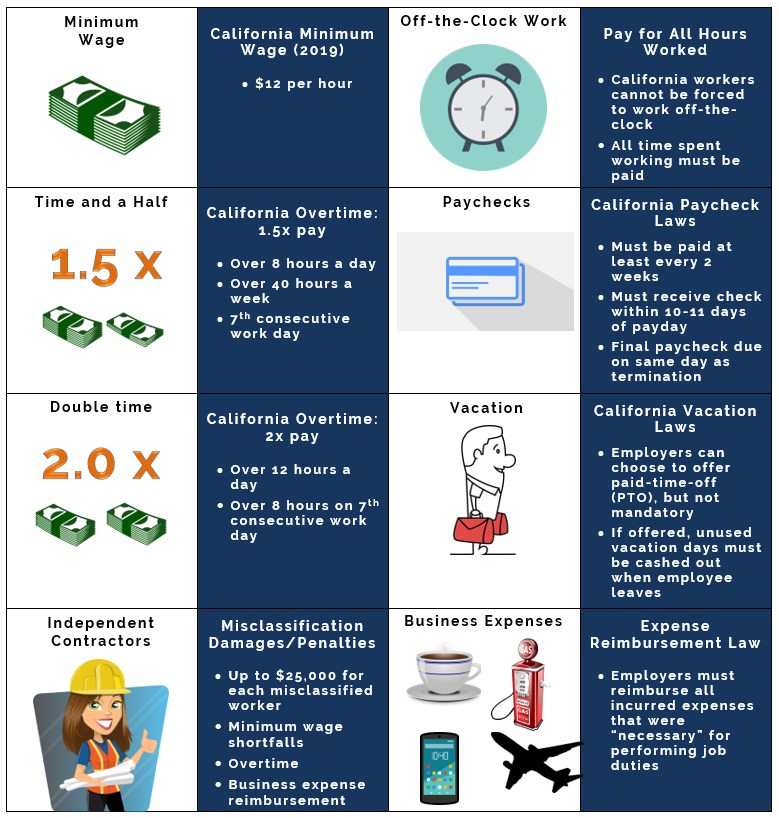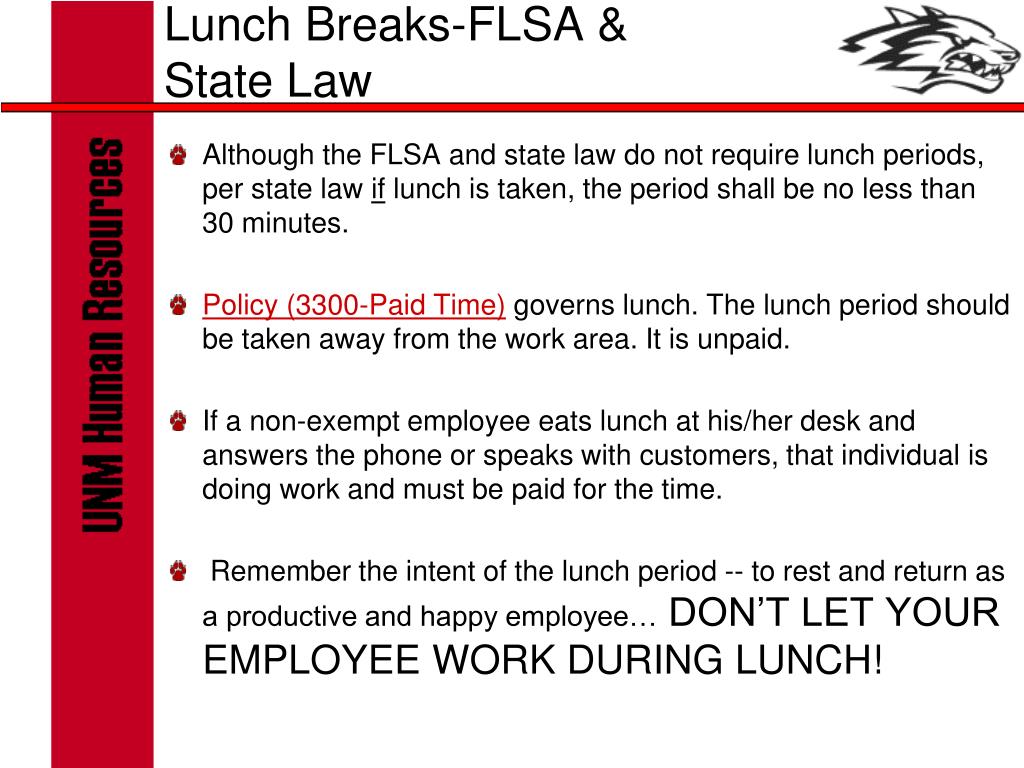
LABOR LAWS LUNCH BREAK CALIFORNIA CODE
Under California Labor Code section 226.7, if an employer does not provide an employee with a compliant meal or rest break, the employer must pay the employee a premium payment of one hour of pay at the employee’s “regular rate of compensation.” Recently, the issue before the California Supreme Court was whether that premium payment should be calculated using the employee’s base hourly rate or whether the employer must use the employee’s “regular rate of pay.” Ferra v. When meal, rest, or recovery breaks are denied or interrupted, California workers are entitled to premium pay.

The employer cannot require an employee to be on-call during rest and recovery breaks. Employers must allow and encourage recovery breaks, which must be at least five minutes long. However, the employee is not entitled to a rest break when their total shift is fewer three and a half hours Įmployees working outdoors are entitled to take a recovery break to cool down and prevent heat illness. One ten minute rest break per four hours worked.

Under California Code of Regulations title 8, section 11090, employers must provide California employees with uninterrupted, paid rest breaks as follows: Except, the employee may waive their meal break if the employee’s shift is no more than twelve hours. Except, the employee may waive their meal break if the employee’s shift is no more than six hours Ī second thirty minute, uninterrupted, unpaid meal break where the employee works more than six hours. One thirty minute, uninterrupted, unpaid meal break where the employee works more than five hours. Under California Labor Code section 512, employers must provide California employees with uninterrupted meal periods as follows:

Meal, rest, and recovery breaks do not have the same meaning, these are differentiated by time period, legal code, and length. California Law on Meal, Rest, and Recovery Breaks
LABOR LAWS LUNCH BREAK CALIFORNIA PROFESSIONAL
The premium pay provisions largely do not cover overtime-exempt employees. Labor Code Section 226.7(e) provides that they do not apply “to an employee who is exempt from meal or rest or recovery period requirements pursuant to other state laws, including, but not limited to, a statute or regulation, standard, or order of the” IWC. For example, the wage orders exempt executive, administrative, and professional exempt employees from their meal and rest period provisions. The law currently applies “for each workday that meal or rest or recovery period is not provided,” when an employer fails to provide an employee “a meal or rest or recovery period in accordance with a state law, including, but not limited to an applicable statute or applicable regulation, standard, or order of the Industrial Welfare Commission, the Occupational Safety and Health Standards Board, or the Division of Occupational Safety and Health. In light of this ruling, employers should not require or suggest that employees carry company pagers, phones or other communication devices during their rest breaks. ABM Security Services, Inc, 2 Cal.5th 257 (2016). "During required rest periods, employers must relieve their employees of all duties and relinquish any control over how employees spend their break time," the state high court held in Augustus v.

However, employers are not required to police employees to ensure that no work is performed during that time. Employers in California can not require workers to remain on duty or "on call" during their rest breaks, according to the California Supreme Court. The California Supreme Court requires employers to provide breaks, relieve employees of their duties during those periods and be sure not to interfere with workers' ability to take breaks. California State's Labor Law Regulating Breaks Employers that fail to provide uninterrupted, Code compliant meal, rest, and recovery breaks must pay workers premium pay. The California Supreme Court held that such premiums must be calculated at the employee's "regular rate of pay," which is the formula used to determine overtime payments under the state Labor Code. In California, employers must provide workers meal, rest, and recovery breaks.


 0 kommentar(er)
0 kommentar(er)
